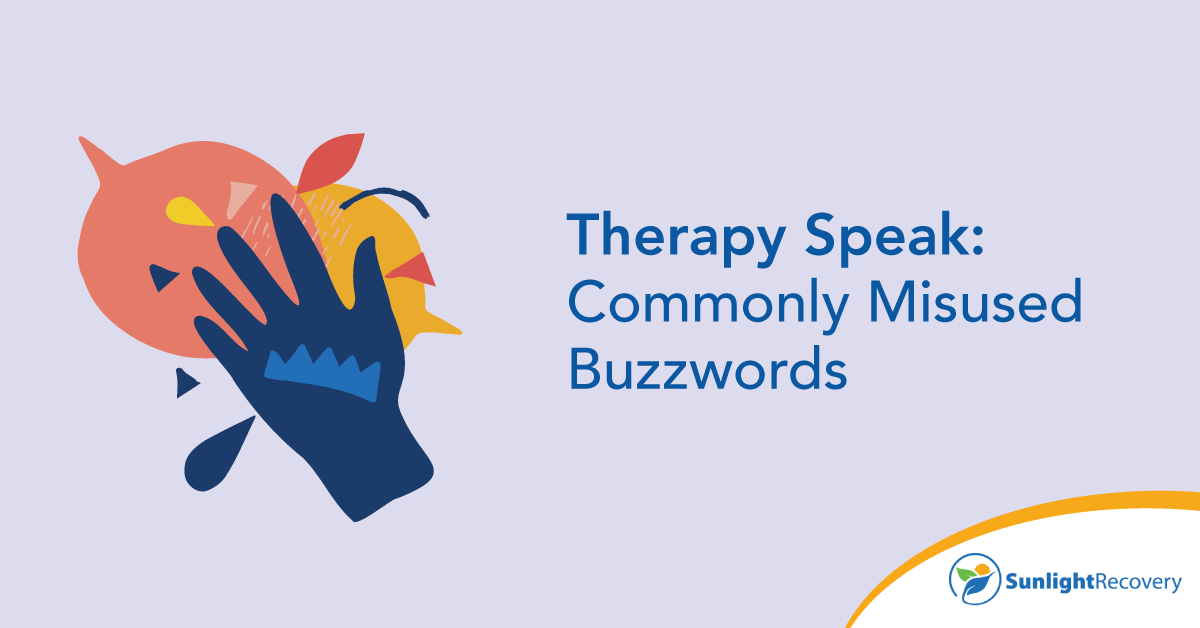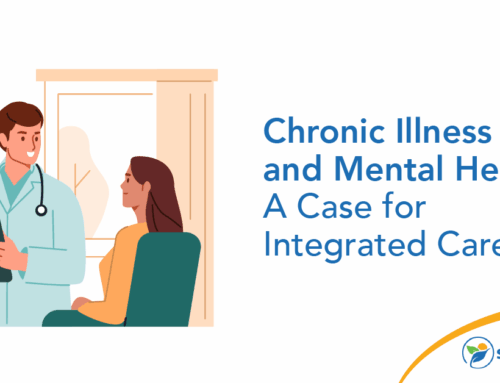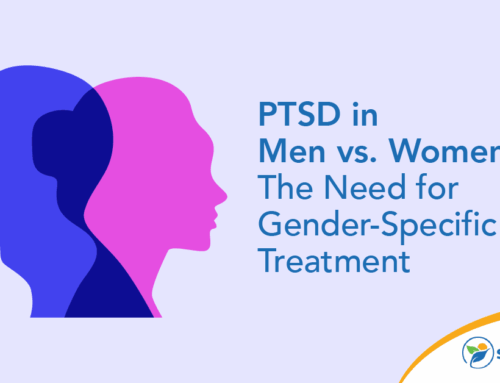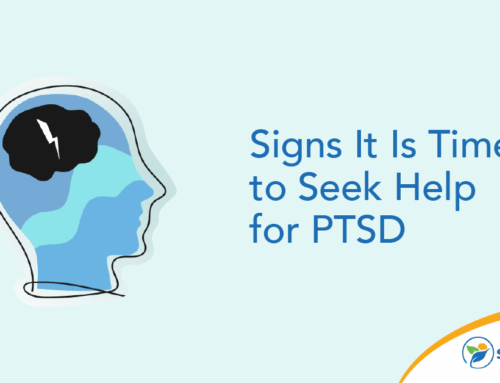Mental health awareness is growing. Terms previously used exclusively in therapy sessions are becoming mainstream. Social media has helped popularize “therapy speak,” so the mildly annoying coworker is now “toxic” and daily inconveniences are “triggers.” While increased discussion around these issues can be good, the misuse and oversimplification of specialized terms can sometimes cause harm.
‘Therapy Speak’ and Why Professional Context Matters
While therapy terms can help people better understand mental health issues, misuse diminishes their meaning and creates misunderstandings. Words specific to psychological conditions originated in professional settings to describe complex issues.
Mental health professionals have expressed concern over how these terms are thrown around in social media settings, popular culture and even day-to-day conversations. Casual use can create further stigma around mental health conditions. Individuals may inaccurately diagnose themselves or others based on something seen on a short-form video platform. Even more worryingly, the struggles of people with debilitating psychiatric conditions could be minimized.
The colloquial use of psychological concepts isn’t entirely harmful. Knowing how to describe the nuances of emotional states can help us better understand previously stigmatized issues. But it’s also important to understand what these popular buzzwords mean and use them responsibly.
Overused and Misunderstood Therapy Terms
Gaslighting
Derived from the 1944 movie Gaslight, the word describes the psychological abuse tactic of making someone doubt their reality to gain control or power. As the term gains traction, it’s increasingly being used as an accusation during disagreements or differences in perception.
Gaslighting is a form of prolonged manipulation commonly seen in abusive romantic relationships. For example, a partner constantly denies certain events happened, such as conversations or promises, even though there’s clear evidence they occurred, making the other person question their memory or sanity.
Boundaries
This term is sometimes misused to justify shutting people out, avoiding difficult conversations or attempting to control another person’s behavior. For instance, “setting a boundary” may be misused to forbid a romantic partner from attending a work party or to cut off all communication for minor misunderstandings instead of addressing issues openly. These aren’t reasonable boundaries. They’re just a way of weaponizing therapy speak.
Boundaries are meant to be healthy personal limits set to protect an individual’s mental well-being. Setting healthy boundaries is about communicating your needs and respecting the other person’s, not isolation and selfishness. Deciding not to respond to work emails after hours or politely declining a social invitation when you’re emotionally or physically drained are examples of healthy and reasonable boundaries.
Narcissist/Borderline
You may have heard these words used as insults toward former friends or past partners. These terms frequently appear on social media or in casual conversations to label anyone who exhibits selfish, irritating or intense behavior.
Narcissistic and borderline personality disorders are complex conditions. People with personality disorders exhibit pervasive symptoms such as a lack of empathy, intense emotional outbursts and a constant need for validation. These diagnoses can’t be deduced based on reading an article or watching a short video that lists symptoms.
Abusive
When a term as powerful as “abusive” is misused, it can diminish its severity. Online and in casual conversations, individuals are sometimes labeled abusive for relatively innocent actions such as losing their temper during an argument.
Abuse implies a pattern of harm and a power imbalance. It’s most often seen in romantic relationships or parent-child dynamics. While abuse takes many forms, such as emotional, financial and physical, it involves consistent actions meant to control, manipulate or exert dominance over another person.
Self-Care
In mental health, “self-care” is about prioritizing your well-being through intentional practices. Joining a gym, signing up for a class at your community college or attending therapy appointments are good examples of self-care. However, the term is sometimes invoked to justify overindulgence and avoidance of responsibility. For example, going on an expensive holiday instead of paying bills isn’t self-care.
Toxic
“Toxic” has become the go-to term for any behavior an individual dislikes. Similarly to “abuse,” the term is used in therapy to describe behavior patterns that cause emotional damage to another person.
Triggered
Sadly, people have casually referred to mild annoyances and irritations as “triggers.” The term is meant to describe a strong reaction to trauma-related stimuli in individuals with PTSD or other mental health conditions. Individuals suffering from post-traumatic stress may have adverse reactions to revisiting locations, hearing certain sounds or being exposed to smells related to the traumatic event.
Potential Impact of Misusing Therapy Jargon
Having more conversations about mental health is good for combating long-standing stigmas. However, the incorrect and overly casual use of specific terms can impact how mental health is viewed by society, resulting in:
- Reinforced stigma. Misusing these terms can reinforce mental health stigmas by labeling people inaccurately.
- Diluted meaning. Casual overuse makes it harder for people to recognize and understand the severity of mental health issues.
- Damaged relationships. Incorrect use of therapy terms in everyday interactions can lead to avoidable conflicts and misunderstandings, making resolving interpersonal problems more difficult.
- Lessened mental health support. Reducing complex mental health terms to buzzwords can prevent people from seeking or recognizing appropriate help.
Tips for Mindful and Respectful Mental Health Language
The solution to the incorrect use of mental health terms isn’t to stop using them altogether. Instead, you should strive to better understand these mental health buzzwords before introducing them into your vocabulary.
- Educate yourself. Understanding mental health terminology requires seeking reliable sources. Instead of relying on social media alone, consider exploring resources from trusted organizations or mental health experts.
- Avoid labels. Refrain from labeling someone as narcissistic or toxic without fully understanding these complex terms. Mislabeling can lead to stigma and oversimplify someone’s behaviors or personality traits.
- Be cautious. Try to avoid using clinical terms in casual conversations. Instead of saying “I’m setting boundaries,” try “I need some space.”
- Use empathy. Approach mental health discussions with understanding for the other person. Use language that acknowledges their experiences without minimizing or trivializing them.
Speak to a Therapist
Learning about therapy terminology may not be enough when you’re facing a mental health issue. When you need someone to listen, we’re here anytime, day or night. Get in touch now and find out how our team can support you.







